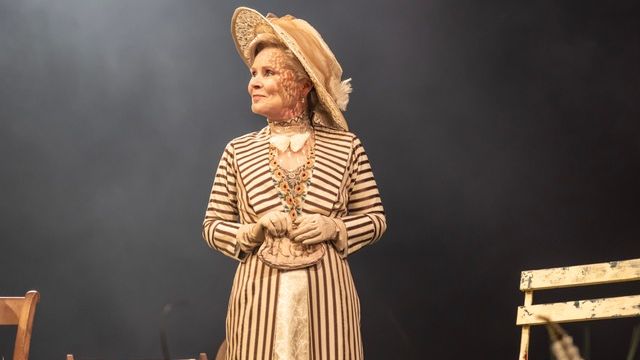Mrs Warren’s Profession
These days, it’s hard to believe that Mrs Warren’s Profession by George Bernard Shaw, written in 1893, was not performed until 1902 because the Lord Chamberlain, the censor of plays, refused it a license because its subject is organized prostitution.
It is, of course, about much more than prostitution. It is a play about relationships, power and compassion.
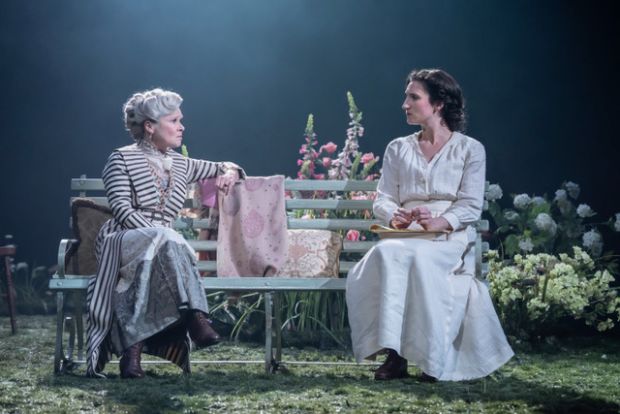
Shaw would also write Arms and the Man, Major Barbara and of course Pygmalion (the basis for the classic musical My Fair Lady) amongst others. These plays all feature strong women, not the norm for playwrights of this period.
The story, for those unfamiliar, concerns Mrs Warren, a brothel owner and former prostitute. She runs a successful chain of brothels, having entered the profession in her youth due to financial necessity and limited options available to women at the time. Over the years, Mrs. Warren has become wealthy and independent, though her profession is considered immoral by society. The play explores her relationship with her daughter, class, gender, and the economic realities that shape women’s choices, as Mrs. Warren defends her work as a means of survival within a corrupt social system.
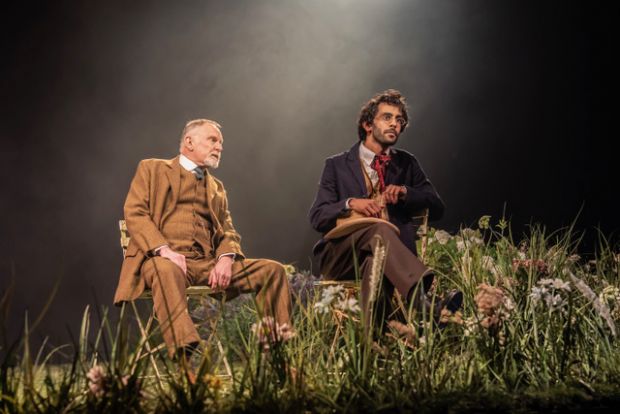
The National Theatre, well known for presenting a mixture of classic and modern plays, have struck gold in teaming legendary Imelda Staunton (The Crown, Harry Potter and the Order of the Phoenix & Downton Abbey) as Mrs. Warren with her real-life daughter Bessie Carter (Bridgerton & Cranford) as her stage daughter!
Directed by Dominic Cooke, famous for his direction of Follies and receiving the Laurence Olivier award for Best Director for his revival of The Crucible in 2007, the play is a clever reimagining of the original play without changing the text.
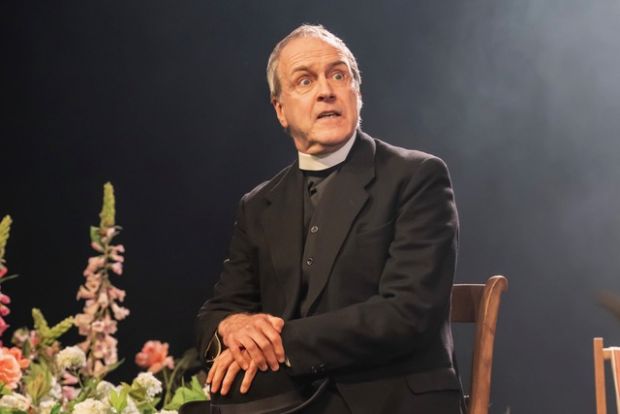
The original play is in four acts, Cooke’s reimagining sets the play on a huge revolve which thanks to Chloe Lamford’s clever set design (she also designed the costumes) becomes a cottage garden, the rectory Garden and an office in Honoria Fraser's chambers. Jon Clark’s atmospheric lighting adds to the ambience of the play and lets the characters slip on and off stage without the need for doors or gates.
Cooke’s characters are real (sometimes too real, in the best possible way), wonderfully drawn and totally believable. His blocking is spare, allowing Shaw’s words take the forefront and the actors’ talents to shine.
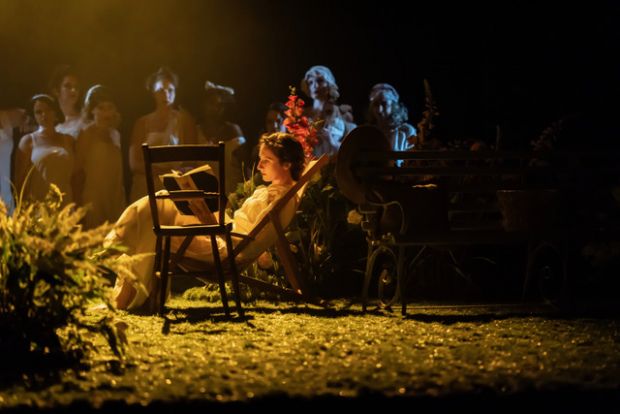
An ensemble of women dressed in bloomers and camisoles (presumably Mrs. Warren’s ‘ladies of the night’) change the set dressing between acts, including impressively rolling back the lawn of the garden scenes to reveal the office floor for the tumultuous last act in the office.
Imelda Staunton is in her element as Mrs. Kitty Warren, complete with a ‘common’ accent. From her first to last scene, she dominates the stage and looks a million dollars. The last scene (with her daughter) is a verbal boxing bout. As viewers we understand both sides of the argument, but find our allegiance constantly changing as the bout continues. One can only hope that real life mother and daughter have a better relationship!
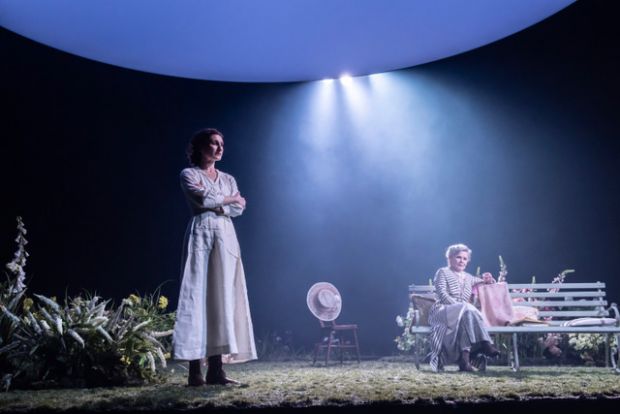
Bessie Carter as Vivie is the perfect foil for her mother. Spending more time on stage, we follow her development, gaining strength as the play progresses. She ‘plays’ the men in her life like a violin, and only meets her match when confronted with the circumstances of her upbringing. It is an intense performance by Carter.
Kevin Doyle as the Rev. Samuel Gardner is suitably officious, asserting himself as father and clergyman without being brave enough to command respect in either capacity. His scene in the garden trying to finish getting himself dressed is hysterical.
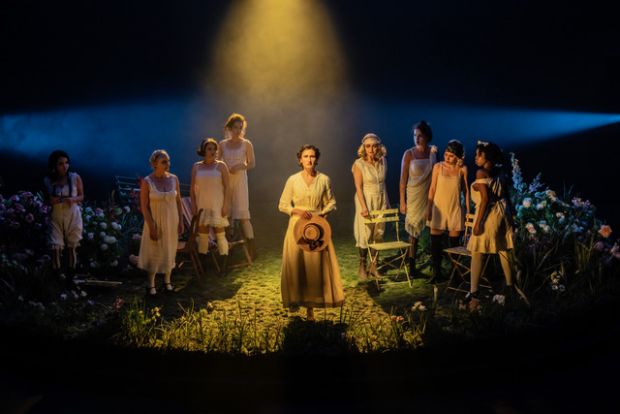
Robert Glenister’s Sir George Crofts is a heavy drinker and filthy rich, enabling him to invest in Mrs Warren’s chain of brothels. Glenister is pompous without resorting to caricature and relishes flaunting his wealth and position.
Reuben Joseph’s Frank Garnder leads a decadent lifestyle, supported by his father to cover his debts. Although a seemingly superficial person, after learning he is potentially Vivie’s half-brother, refuses to be involved with Vivie's money, showing a glimpse of his good nature by deciding not to pursue a relationship that would burden her financially. Joseph manages the character shift extremely well and one can almost sympathise with him at times.
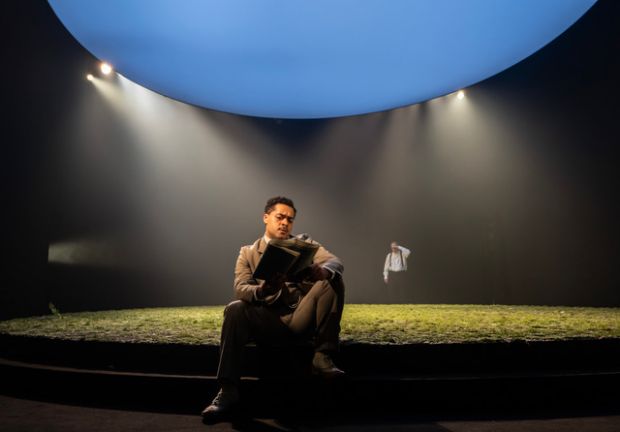
Sid Sagar’s Mr. Praed is the most removed from the movement of the play. He is a witness to the transgressions onstage, and although his influence on the plot is limited, he is necessary for understanding how the other characters develop.
Mrs. Warren’s Profession is a well-crafted, well designed and well-acted piece of theatre that is sure to delight any Shaw fan or anyone who is new to this period of English theatre. The casting is spectacular and compulsive viewing, especially the last act!
Barry Hill OAM
Photo credit: Johan Persson
Subscribe to our E-Newsletter, buy our latest print edition or find a Performing Arts book at Book Nook.

